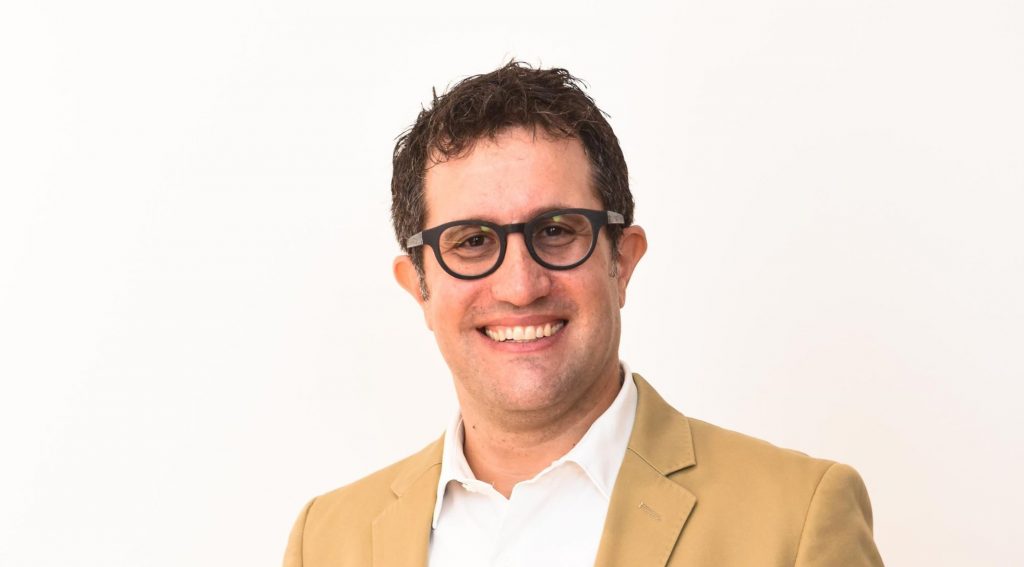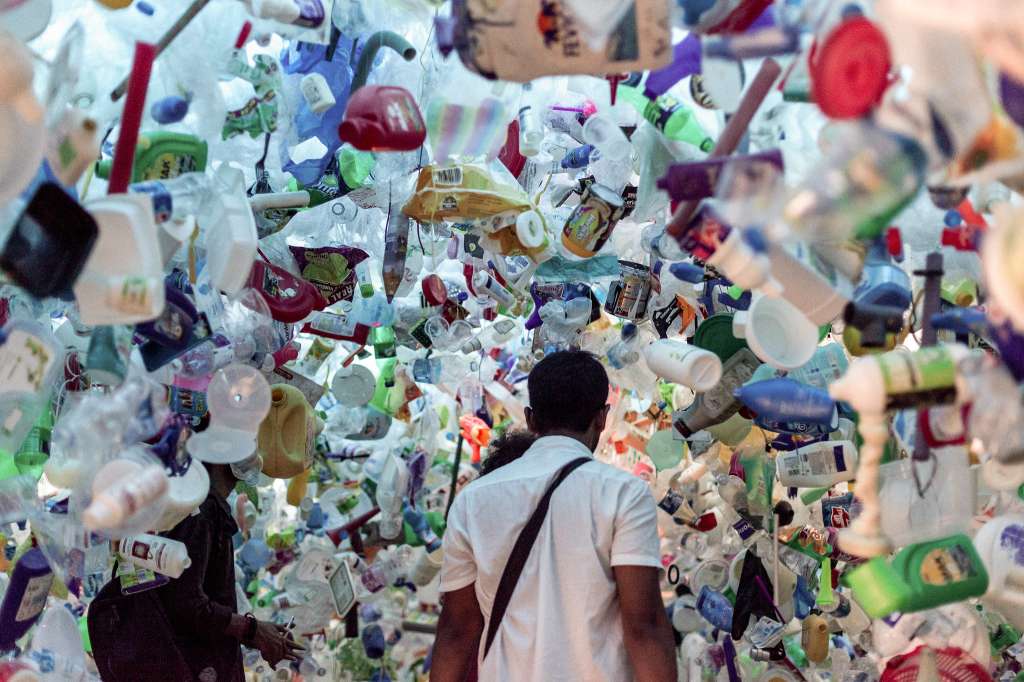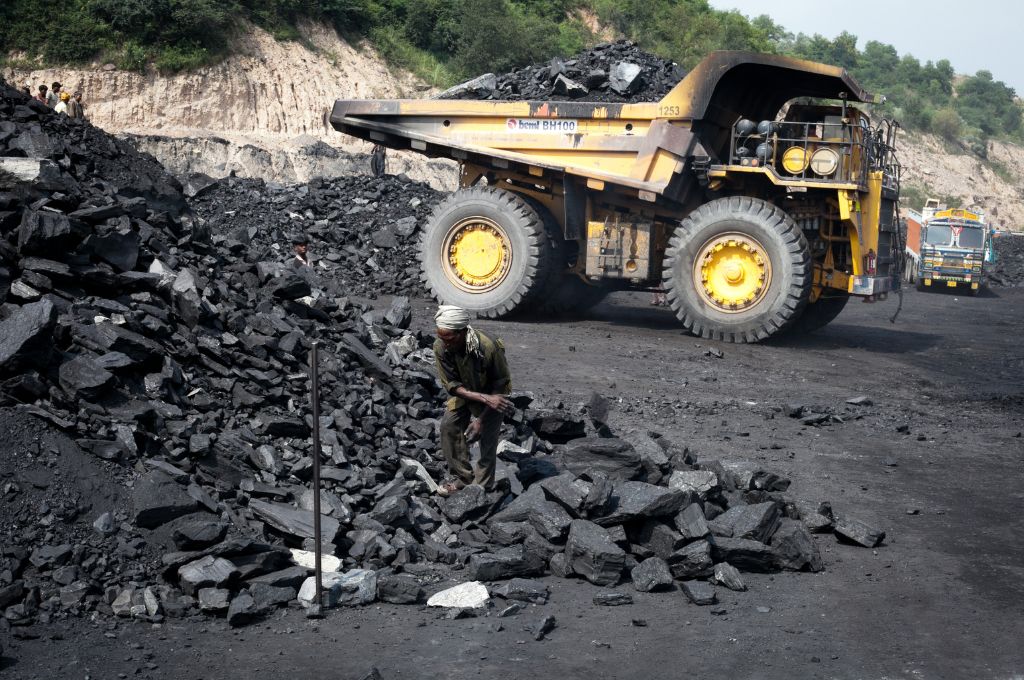Rob Kaplan is founder and CEO of Circulate Capital, an investment management firm dedicated to deploying catalytic capital to scale solutions that advance the circular economy in South and Southeast Asia. Rob is also co-founder and senior advisor to Closed Loop Partners, an innovative platform for impact investing, sustainability, and the circular economy; that has deployed more than USD 60 million into recycling and circular economy investment opportunities focused in North America.
In this interview with IDR, Rob talks about the effects of the COVID-19 pandemic on the impact investing space—both on investors and investee companies—as well as the impact of the crisis on investment appetite in climate solutions.

Picture courtesy: Circulate Capital
What, according to you, have been some of the major effects of the pandemic on the impact investing space?
One of the biggest effects of the pandemic is that it is creating significantly more uncertainty, which is one thing that investors really don’t like. As a result, we are seeing a pausing and slowing down of capital deployment in general. That said, my sense is that this is happening at a slower pace than what we’re seeing with traditional commercial investors, perhaps because impact investors are not only focused on money when investing; they are also committed to the impact they can create.
The pandemic is creating significantly more uncertainty, which is one thing that investors really don’t like.
The current context has raised questions around the right form of capital and the right time to invest. It has also increased a lot of risks, or at least the perception of risk, particularly around investment opportunities that rely on trade and supply chains. Supply chains have been greatly disrupted, and we’re not sure when and how they will return to normal. For instance, In India, plastic recycling businesses are not seen as essential and have not been operating during COVID-19, leading to a lack of recycled raw material for other manufacturing businesses. In addition, the lockdown has also impacted the informal waste management sector, seeing fewer workers collecting and sorting waste, and being able to earn a living, resulting in limited feedstock for recycling businesses and more waste entering landfills and the environment. Both of these things have created breaks in the supply chain.
Similarly, consumer purchasing patterns and behaviours have changed and will continue to change in the coming months, and risks associated with them have become more pronounced. When it comes to industries such as healthcare, for instance, impact investors are putting in as much capital as they can right now.
While we are all thinking on how to ‘build back better’, there is a powerful opportunity to invest in deals that generate positive, measurable social and environmental impact alongside a financial return. If you are looking for a way to invest capital and also create impact, I can’t think of a more opportune moment than right now. There are good deals out there, as it is a buyer’s market, and many investors are thinking about this period as an opportunity to close deals while others are sitting on the sidelines.
Related article: IDR Explains | Impact investing
Do you think the pandemic is going to fundamentally change investing philosophies in the coming months? What might be the long-term shifts we’re likely to see?
In the near-term, we will see significant changes in how impact investment is approached. A lot of investors rely on in-person connections and due diligence to help inform investing decisions, and because we can’t travel or meet people in the same way now, this will become a lot trickier. There will be a shift in focus towards ‘future-proofing’ critical services and supply chains, as well as localisation—businesses that can work locally or regionally, without relying on the international market, will be preferred.
In the long-term, the only thing we do know is that there is going to be a lot more uncertainty, hesitancy, and conservatism. The big questions that are causing concern are: How long will recovery take, and what will come out the other side? But given how fast the effects of the pandemic are evolving, this is hard to predict.
As someone who works on market-based solutions, I think the free markets would re-establish themselves and as things stabilise over the next two to three years, we will start to see institutional capital that has been waiting on the sidelines come back in. And so, I don’t anticipate fundamental shifts in the sector in the long-term, but I do think we’ll see different prioritisations and new ways of managing risk.

In India, plastic recycling businesses are not seen as essential and have not been operating during COVID-19, leading to a lack of recycled raw material for other manufacturing businesses. | Picture courtesy: Flickr
What do you think the shift might look like for social enterprises who are the investee companies?
As we begin to focus more on localisation, local manufacturing, and local economies, there will be a huge opportunity for micro, small, and medium sized enterprises (MSMEs), because they are the lifeblood of those local economies. There are more than 63 million MSMEs in India, making it the second largest MSME sector behind China. These businesses are vital to the economy and employment. That is also partly why we, at Circulate Capital, continue to accelerate our strategy of investing in MSMEs in our focus areas of recycling and waste management.
Moreover, in line with the UN Environment Programme, we believe waste management should be treated as an essential public service to minimise both environmental and health risks. The resilience of critical infrastructure such as waste and recycling goes hand-in-hand with the health and livelihood of communities, as they not only keep our streets and homes clean from waste, and potentially contaminated waste, but also provides jobs and income.
With the way in which the pandemic has affected humanity, many are looking at the global climate crisis with greater urgency. How will investor appetite in climate solutions be impacted?
I believe the interest and investments in climate solutions would not be deeply affected, but the shape they take might change. As we enter into the risk of a global recession, there will be more focus on climate solutions that save money; those that enable eco-efficiency (such as energy saving solutions); or solutions that work on future-proofing supply chains, rather than big, risky technologies that have not been proven. This means we would need philanthropic funds to flow towards innovative solutions that aren’t ready to scale yet, and rely on investment capital for scale.
As we enter into the risk of a global recession, there will be more focus on climate solutions that save money.
For us, when the pandemic started, we sat down with our investors and asked them how they would like us to adapt to it, and almost unanimously, they asked us to keep going. Even our corporate partners are not backing away from their sustainability commitments, in particular their commitments on preventing plastic pollution, which our portfolio companies are currently working on.
We need SMEs providing climate solutions to persist. If we don’t invest in them now, there’s a risk that they will go out of business and our corporate partners won’t be able to meet the commitments that they’ve made. This is because these SMEs are part of the supply chains for multinational corporations, and they need their suppliers to be healthy in order to do their business. It takes many years to get new companies and supply chains running. Now is the time to build them, so that when the economy starts to recover, we are well positioned to deliver climate gains.
Related article: Impact is the new mainstream
What are some of the biggest challenges you foresee in the waste management and recycling industry in the coming months?
There are a few things that we’re paying pretty close attention to. The first is feedstock—that the companies we’re investing in have access to waste plastics or waste materials that they recycle. In the markets that we invest in, Southeast Asia, South Asia, and especially India, the supply chains are reliant on the informal sector. As we know, many of the informal sector and migrant workers have left urban centres, and we don’t know if and when they will return.
There is also the additional challenge of preventing these workers from being exposed to the virus, while ensuring their financial stability. We need to think about how we can support them through our portfolio companies, such as providing them with protective equipment, and also helping mobilise more resources to address their challenges.
Together, these factors have implications on how waste is collected, sorted, and transported to recycling companies, causing disruptions in the ability of these companies to operate.
There are also challenges on the demand side. Many of the companies that we work with also export their recycled plastics to Europe, where we are hearing that companies are at risk of going out of business, and are unable to follow through on paying for their orders. We have been trying to ensure that our portfolio companies are able to manage those risks appropriately.
At the AVPN Virtual Conference 2020, Rob Kaplan spoke about developing sustainable solutions across Asia.
—
Know more
- Read this article by Rob Kaplan on how COVID-19 underscores the need to invest in local waste management and recycling to combat ocean plastic.
- Explore this handbook to learn more about the potential of investing in the waste and recycling industry in South and Southeast Asia.
- Read about how private capital can be employed towards climate solutions, and what counts as a climate-friendly investment strategy.
Do more
- If you are an MSME raising capital in the waste management or recycling sectors, apply for funding at Circulate Capital.
- Join The Incubation Network to get involved in driving innovation and partnerships for inclusive waste management and circular economy solutions.





